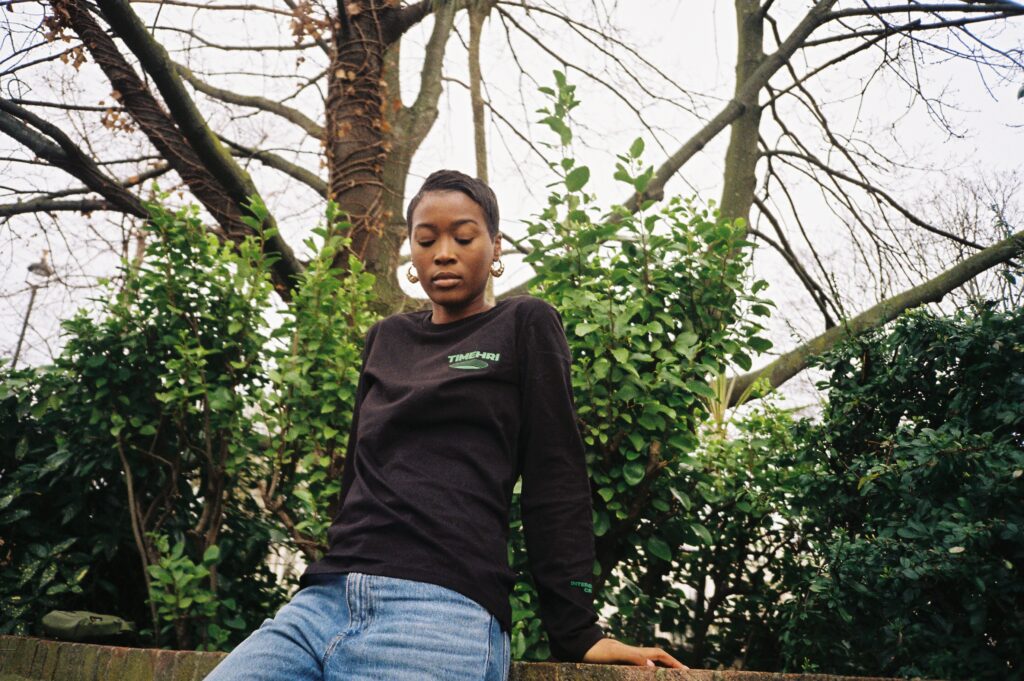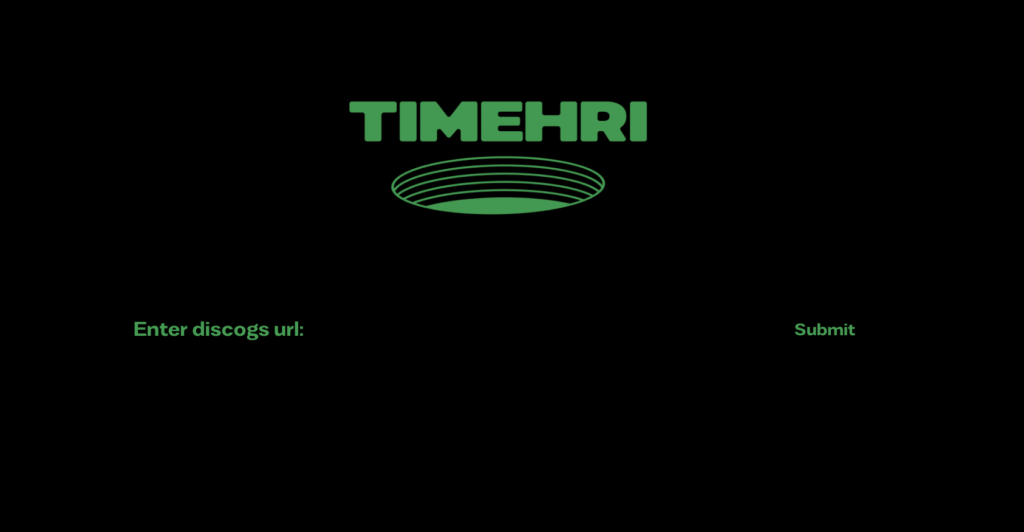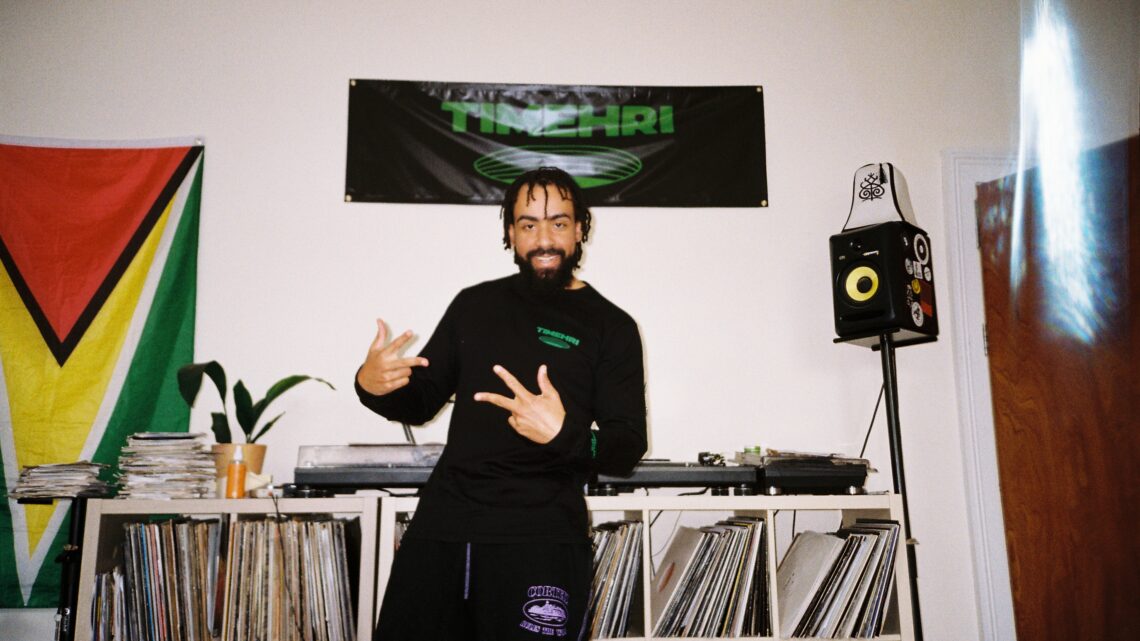
T Dunn at Timehri HQ. Photo by Cameron Evans
Label Report: Timehri Records
Striving through space on an intergalactic crud odyssey, Timehri Records is a Guyanese London-based independent vinyl label and platform specialising in underground UKG, breaks and house.
SoundSight writer Cameron Evans sat down with founder T Dunn to discuss the label’s crud conquest.
Toby started by explaining the origin of Timehri:
“Located deep in the Guyanese hinterland and predating the arrival of Europeans by thousands of years, the Timehri have been used as a visual medium to communicate and symbolise cultural beliefs for millennia. Timehri Records continues this legacy as a cultural aesthetic through music, via an alternate reality sometime in the far future”.
Founded by Toby in 2020, the label has focused on special releases with vinyl and cassette drops exploring an afro-futuristic narrative. This started with DJ Perception’s Distant Horizons EP in March 2021, which he followed up with the acclaimed October 2022 album Journey to the Star.
Other heavyweight releases include Yosh’s Space Freight EP, a Dr Banana vs Dale Mussington cassette, and most recently The Thunderkats’ Wormhole Dojo EP. The label has consistently released innovative, futurebound grounded music.
I asked Toby about the themes of the releases and how the genres included reflect the mission:
“It feels cliché saying we’re all a group of friends. But commonality comes through shared experience and vision, which everyone on the label has. What you’re doing doesn’t necessarily have to prescribe to the label’s outlook, but it has an infusion of the label in it. It’s about cohesively pushing what we believe in.”
“I always do something because I think it’s artistically right to do it as opposed to because it’s financially viable. You see something and wonder how it fits in. That’s part of it, the beauty of it – it’s world-building. You do wonder how it comes across sometimes, but in a certain sense, I don’t care. I do it the way that I see to do it. It didn’t really start – it sounds kind of contradictory – about music. It was to provide space for something which I saw was missing. And the sonic I was in at the time was garage, but it could have just as easily been other sonics that I’ve been into.”
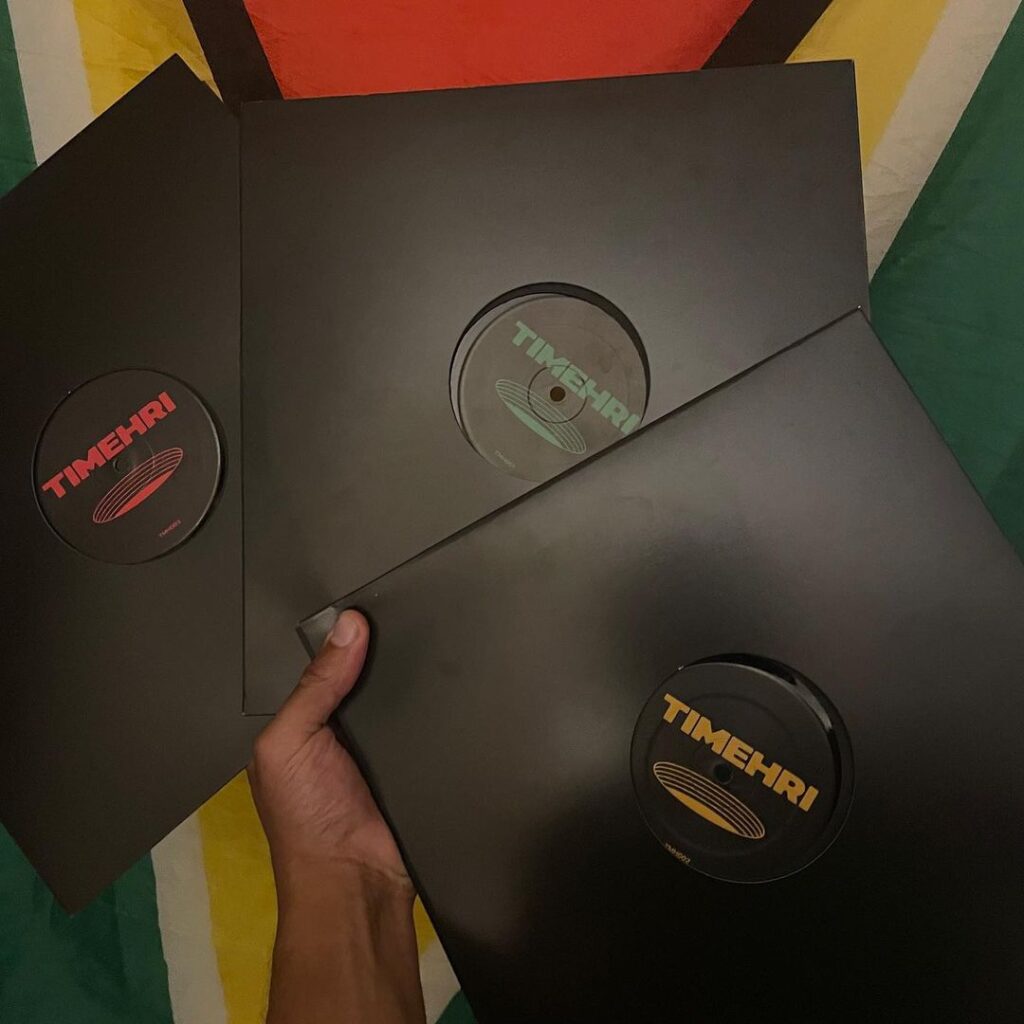
And what was your journey with music that led you to founding the label?
“I started listening to pirate radio when I was quite young. I started going raving at 14-15, around 2005 to 2009. We were listening to a lot of grime too. Dubstep was the main catalyst, really. Listening to Rinse [FM] and all that. And now I have a show with them, it’s full circle. Used to listen to a lot of drum and bass, as well. All UK soundsystem spawned music.
All of this stuff like Digital Mystikz and Loefah, the stuff they did on their [Brixton-based] DMZ nights and their [DMZ] label. 4hero, Mark Mac. And I remember on A Guy Called Gerald – Black Secret Technology and Jacob’s Optical Stairway, all the track names were very otherworldly. That stuff really resonated with me.
From there, I was DJing in Manchester. I had decks from the age of about 16 or 17. I used to go down to [now closed] Blackmarket Records in Soho on D’Arblay Street and buy all the dubstep stuff. That’s where the love for records came in.
But it was when George Floyd was murdered (May 25, 2020) that everything came crashing down, and that catalysed the label.”


Re-reading some of the release notes and things on the website, I really felt the Timehri idea of an alternate reality and intergalactic odyssey – but on another level, it also made me question what reality even is anyway to have an alternate, you know?
“Reality, at the end of the day, is perception. In that sense, there’s no uniform reality. What you envisage as a better reality could be wildly different from what I envisage it as. You do find commonality with people who see that stuff, and it’s a good connection. That’s what happened with the label, and it’s said through the music.”
Echoing words exchanged with DJ Perception in a Resident Advisor Exchange conversation and using him as an example, Toby adds:
“Basically, Timehri represents people who stayed and stay doing their thing. I respect it, and it fits into the vision we have. Music is one of the main professions where people don’t stop. You die on stage.”
“Cam [DJ Perception] fits that. Cam is the garage guy. I always remember this about him: he taught me to see garage in a different way. He’s always showed me things I didn’t think were possible with garage. Until you meet someone like Cam, you really don’t know what’s possible. Every time I see him, I learn something new. It’s a unique skill to convey perspective in such a fresh way. It’s uncommon.”
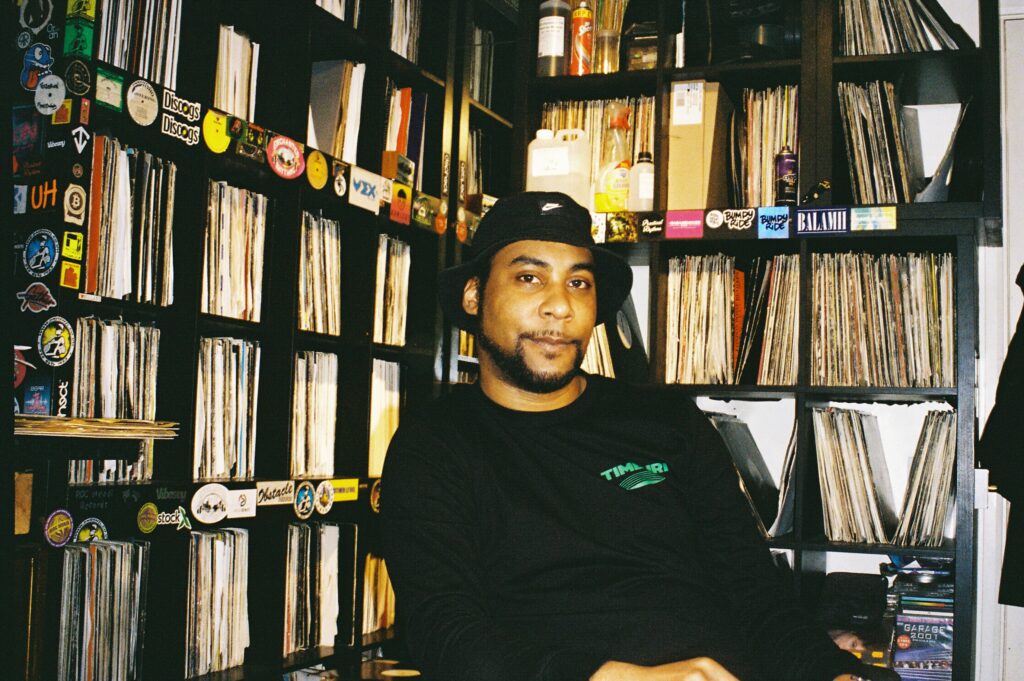
Toby’s mission with Timehri is grounded in a combination of lived experience and reading up on history. I asked Toby about what formed the base for this historical curiosity, which has inspired the awareness and empowerment anchored into the label’s journey.
“That’s how I was raised. My mum, who was born and raised in Guyana, but moved to the UK, is an activist. So growing up Walter Rodney, Marcus Garvey, these kinds of names – they were floating in and around the house. We grew up with that literature, like [Walter’s Rodney’s] How Europe Underdeveloped Africa, and it gave me that outlook on things from an early age.
Then with music, things like Drexciya, had that afrofuturist stuff. You know, slaves throwing their babies off a ship and them founding an underwater reality. I’m fascinated with that kind of thing. I imagined these realities relative to Timehri as a proxy of the reality of the history that I’ve read and know, specifically African colonial history.”
In August 2022, Toby released dig.assistant, a dance music focused recommendation tool improving marketplace and recommender Discogs, and a product of coding skills used in his daily work as a data/software engineer. I asked Toby about how the project went and its future additions:
“Part of it was a reflection of my own taste, wanting to use it on dancehall, reggae and stuff. When I expanded the genres it worked with, I wanted it to represent Timehri slightly more, and it wasn’t doing it justice. And I had the time. It’s done really well. There’s about a thousand users a week, about five thousand overall.
I’m trained and have the knowledge to do this. It’s very niche skills to build a recommender and use AI systems. And given how little money there is in vinyl digging and electronic music, no-one was going to invest. So I thought it would be a good thing to do for the community. That’s more where my academic interests lie.”
“I was blown away by the response, which really showed that it didn’t exist at all. It’s all part of the Timehri wormhole. Jump in and see what you find…”

